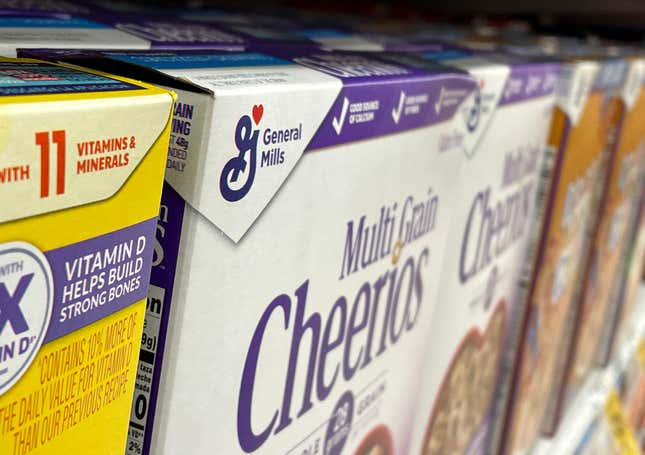
Food processing powerhouse General Mills is facing legal action as a group of Black employees calls the company out on a decades-long history of racism in a suburban Atlanta plant.
On June 2, eight Black employees filed a lawsuit against the company, which includes Cheerios, Betty Crocker and Bisquick in its portfolio, for actions they say have favored white employees since the 1980s.
According to their suit, the plaintiffs allege a group of white managers and human resources employees who referred to themselves as the “Good Ole Boys” did things like choosing white employees for promotions over more qualified Black employees and used racist symbols as intimidation tactics to keep Black employees from filing complaints.
The workers shared the example of a mural — visible in the factory between 2005 and 2021 — which used General Mills mascots like the Honey Nut Cheerios bee to represent Confederate leaders like Gen. Stonewall Jackson.

In another example, one of the Black employees said that when he found “KKK” written on his lunchbox back in 2006, he was forced to submit a writing sample to prove someone else was to blame.
“The ‘Good Ole Boys’ believe that history and symbols that have been co-opted or misappropriated by the Ku Klux Klan and other white supremacist hate groups are useful to keep Black people ‘in their place’ and discourage Black people from speaking or taking action against the disparate treatment of Black employees at the Covington facility,” language from the suit reads.
According to the Human Rights Policy on the company website, General Mills says it is “committed to creating a culture that ensures zero harm to our employees by establishing safe and healthy working conditions” and that it “values diversity and considers it core to our business strategy.”
General Mills has not commented on the suit, but the plaintiffs hope a trial will result in “compensatory and punitive damages for hundreds of Black employees in the last four years who suffered adverse employment actions.”

